Image: Alres Almelda. CC BY 2.0 - creativecommons.org/licenses/by/2.0/

Local communities and everyday life in Funen
Ryan Weber
Ilpo Tammi
Svendborg
4.4.2016
Hvor er det værd at bo
Presentation overview
- Background and Approach
- Service and public transport accessibility in Nordic city-regions
- Linking accessibility to socio-economics and demographics
- The big picture on Funen
- Turning information into practice
- Remarks about future perspectives

Background and Approach

Mapping service reachability in 4 Nordic city-regions
- Analytical focus on :
- functioning of the urban form - the effortlessness of everyday life and access to amenities
- a functional "city-regional" scale
- testing a comparable spatial analysis in multiple cities
- providing information that can support policy and planning
In-depth analysis conducted for Funen:
- Linking accessibility to socio-economics and demographics
Background and Approach

- 2400 points of common "everyday services" mapped on Fyn
- Detailed timetable and location data of public transport stops
| Sector | Component | Service |
|---|---|---|
| Culinary | Restaurants | Restaurants |
| Cafes and bars | ||
| Groceries | Grocery stores | |
| Convenience stores | ||
| Culture & leisure | Fitness | Fitness centers / gyms |
| Swimming halls |
||
| Arts | Cinemas and theaters | |
| Libraries | ||
| Health | Hospitals | Hospitals |
| Clinics and pharmacies | Clinics | |
| Pharmacies | ||
| Education | Pre-school | Daycares and kindergarterns |
| Schools | Primary | |
| Secondary | ||
| Tertiary | ||
| Commerce | Banking | Banks and ATMs |
| Postal services | Post offices or kiosks |


Background and Approach

Service accessibility in Nordic city-regions

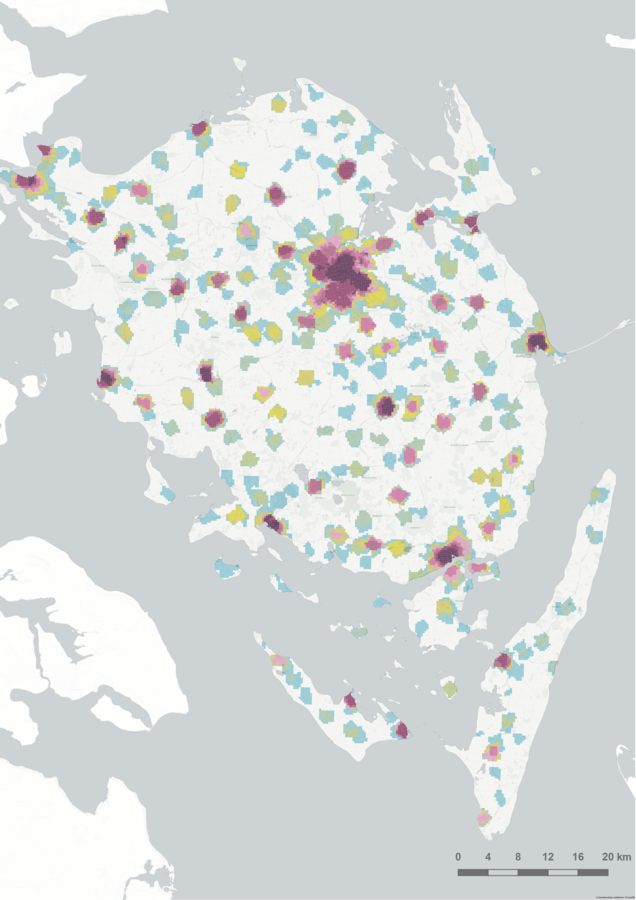
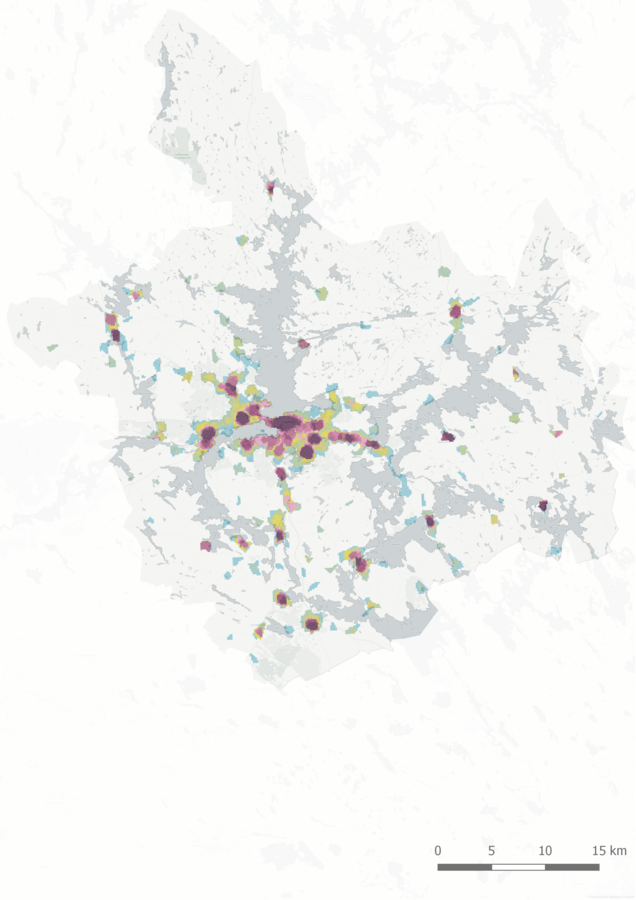
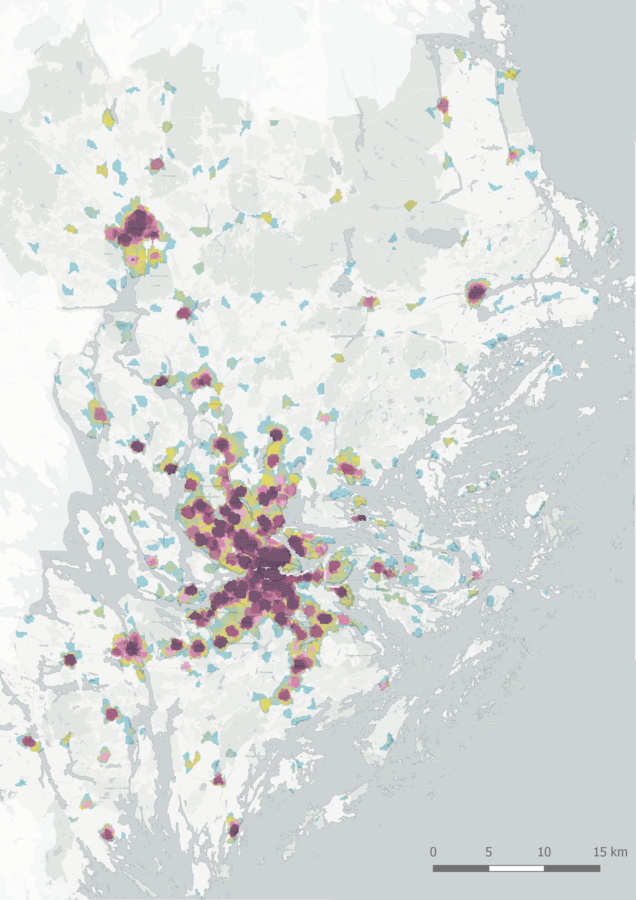
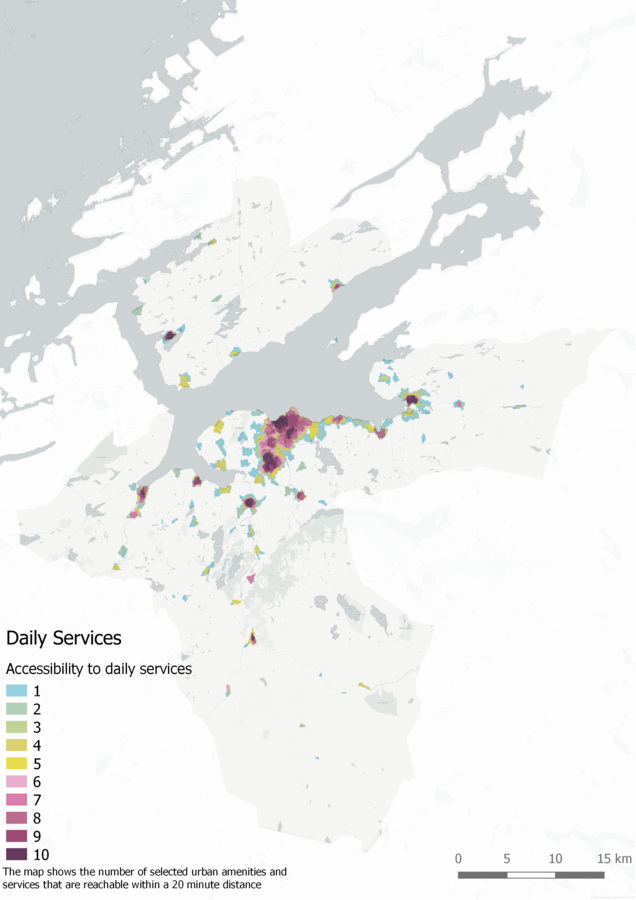
Service accessibility in Nordic city-regions

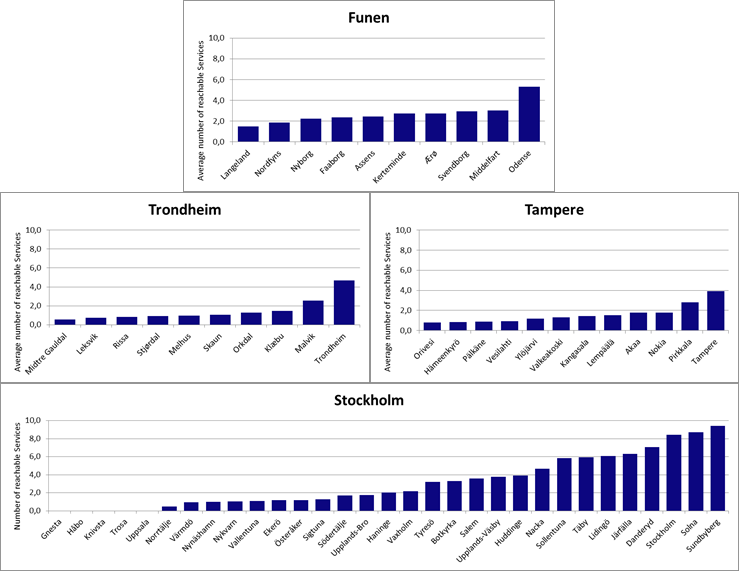
Public transport accessibility in Nordic city-regions

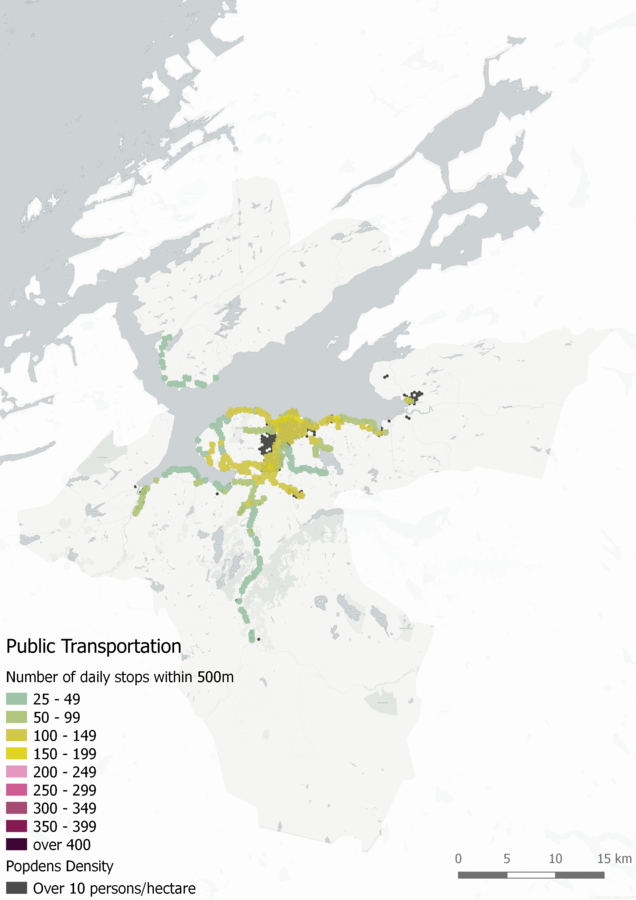
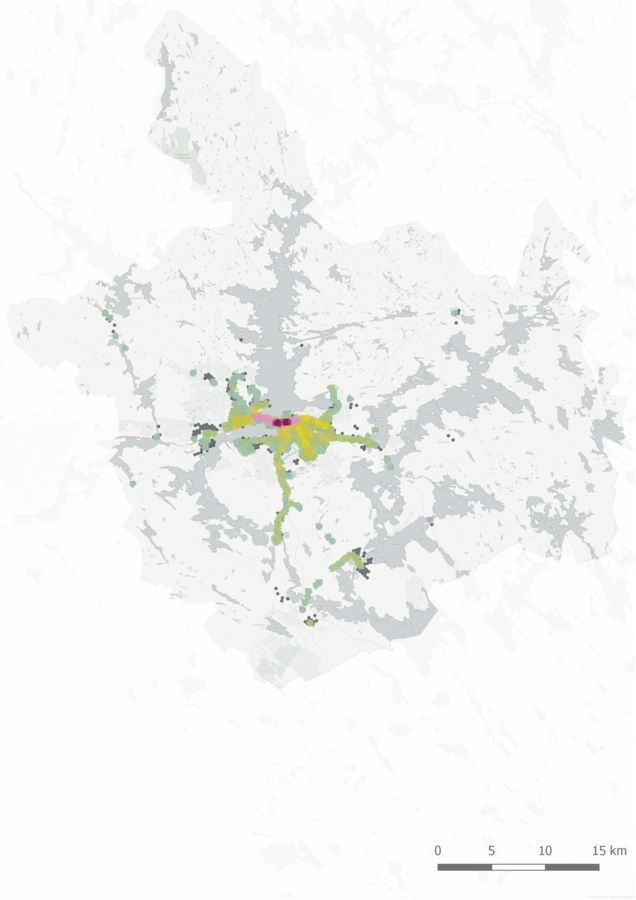
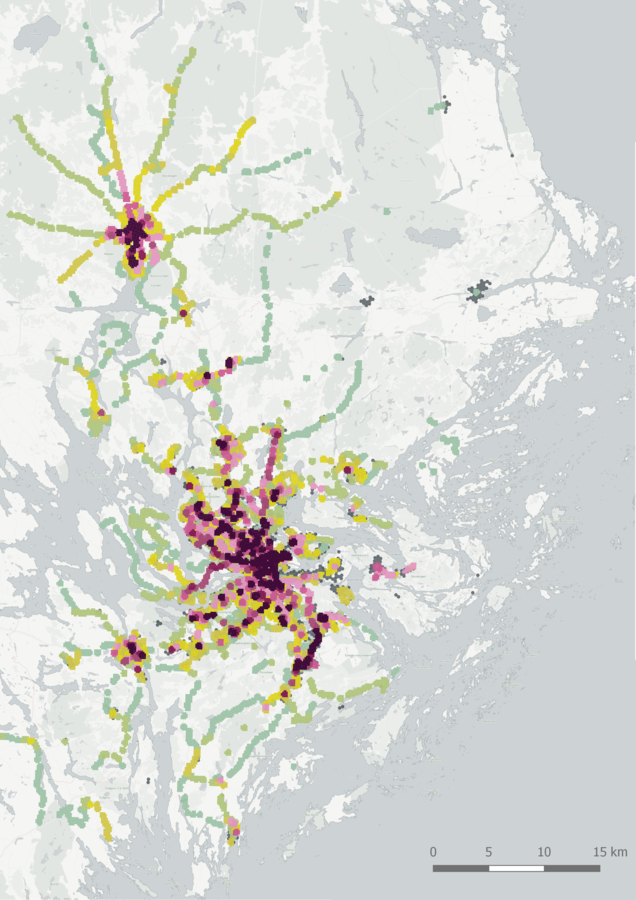
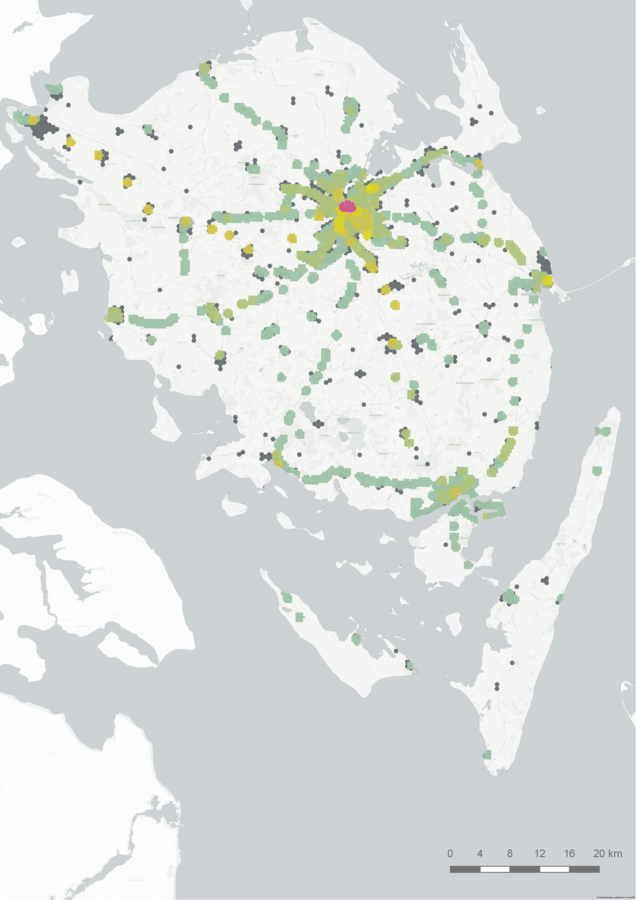
Public transport accessibility in Nordic city-regions

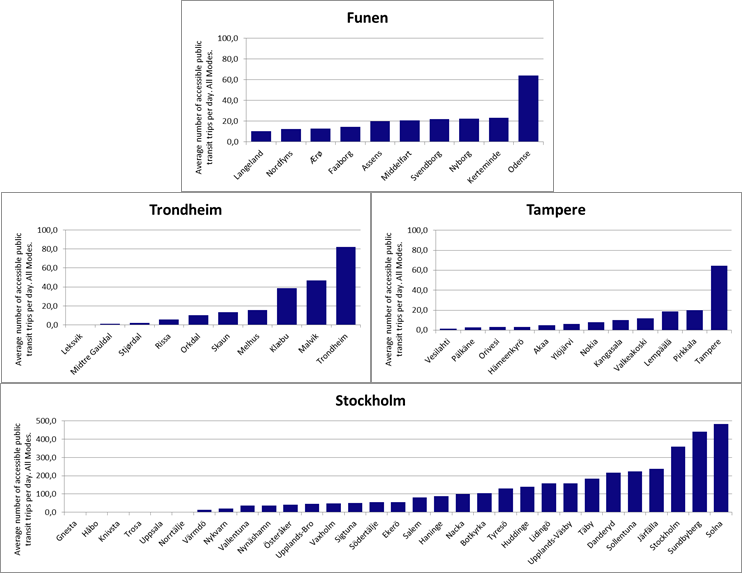
Linking accessibility to socio- economics & demography

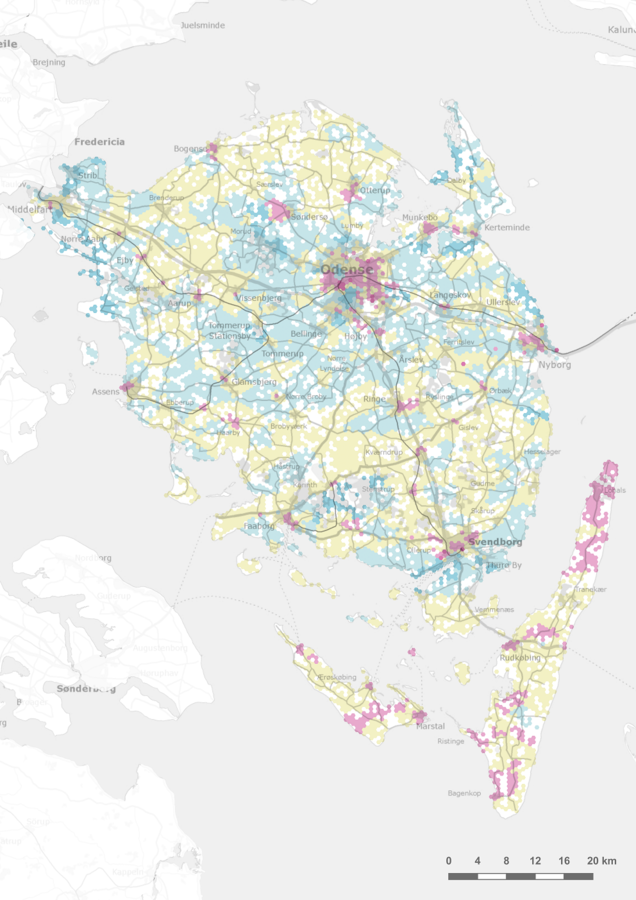
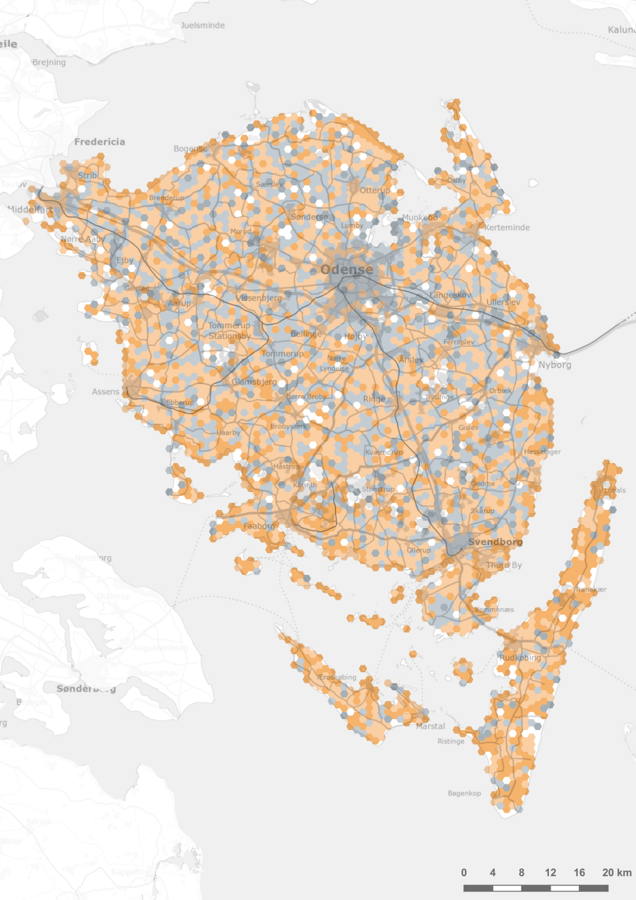
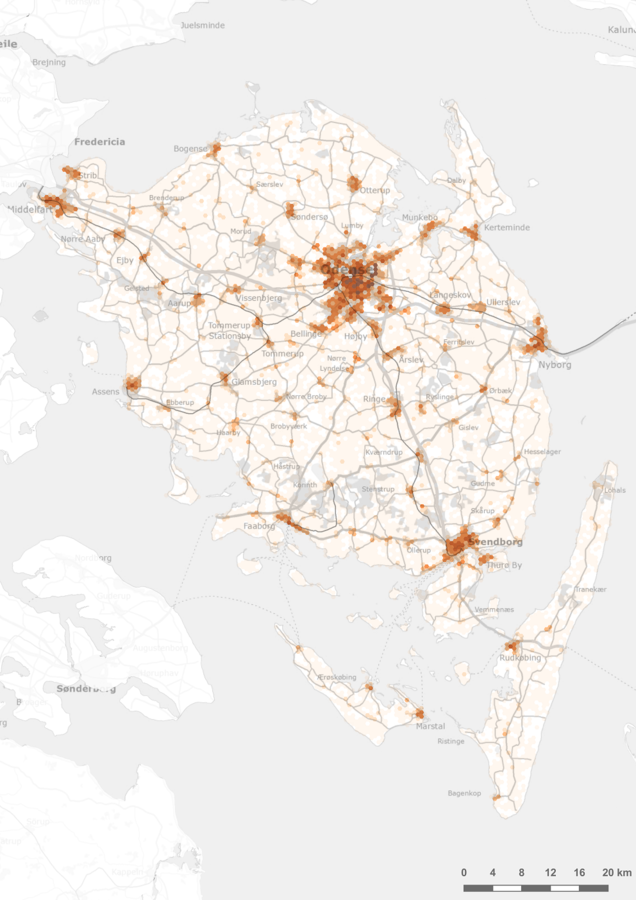
Linking accessibility to socio- economics & demography

Linking accessibility to socio- economics & demography

The big picture in Funen

All urban areas over 1000 inhabitants
Maximum Attainable Service Uses (MASU)
Per Inhabitant Service Accessibility (PISA)



1 (strongest)
Index
0 (weakest)

1 (strongest)
Index
0 (weakest)

Turning information into practice

Three ways to improve accessibility to services via planning:
1. Plan more services
- Not necessarily feasible budget-wise, planning new locations for private service providers = market-dependent
2. Plan better connections to services
- Pedestrian and cycleways can be cost effective, but a lack of such is often not the core problem in Denmark
- Better public transport connections = budget-driven and semi-market-dependent > requires denser urban form
3. Plan denser urban form
- Not always feasible, suitable or answering to the right type of demand. Market-driven
Turning information into practice

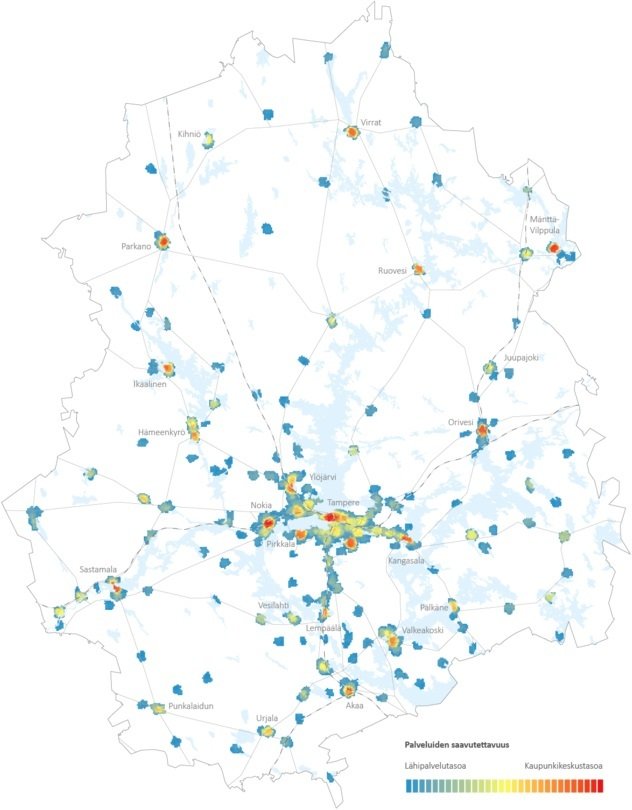
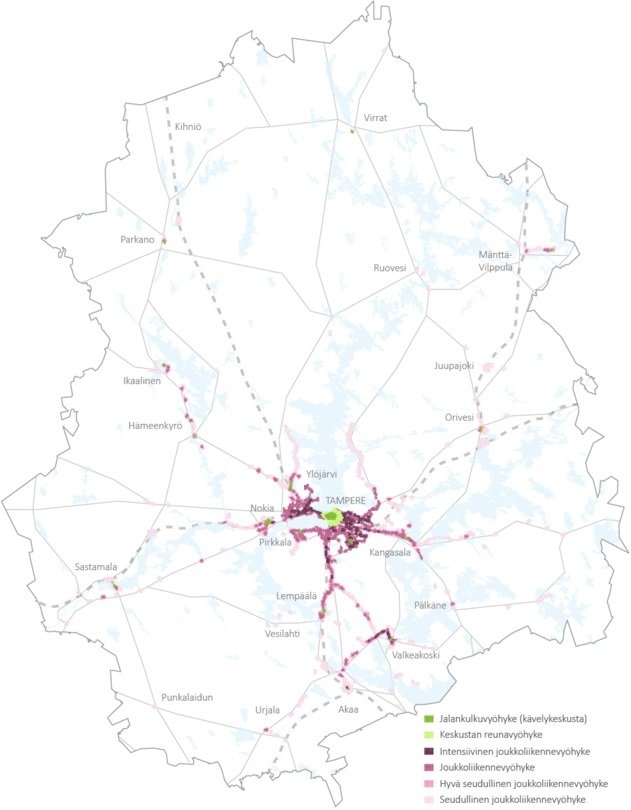



Examples from Tampere regional planning for 2040
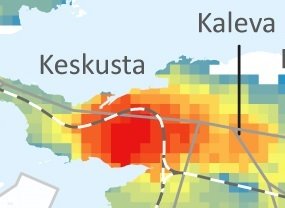
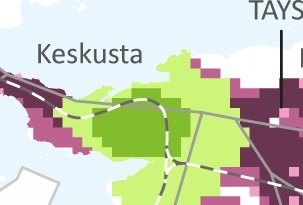
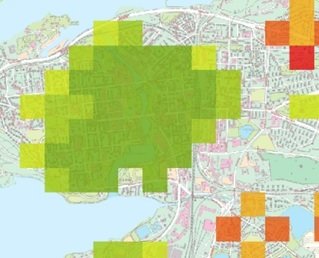
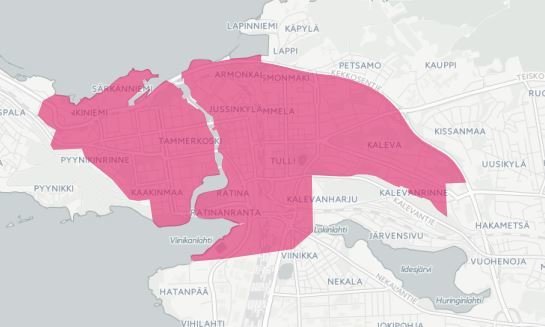
Turning information into practice

Health Services in Iceland
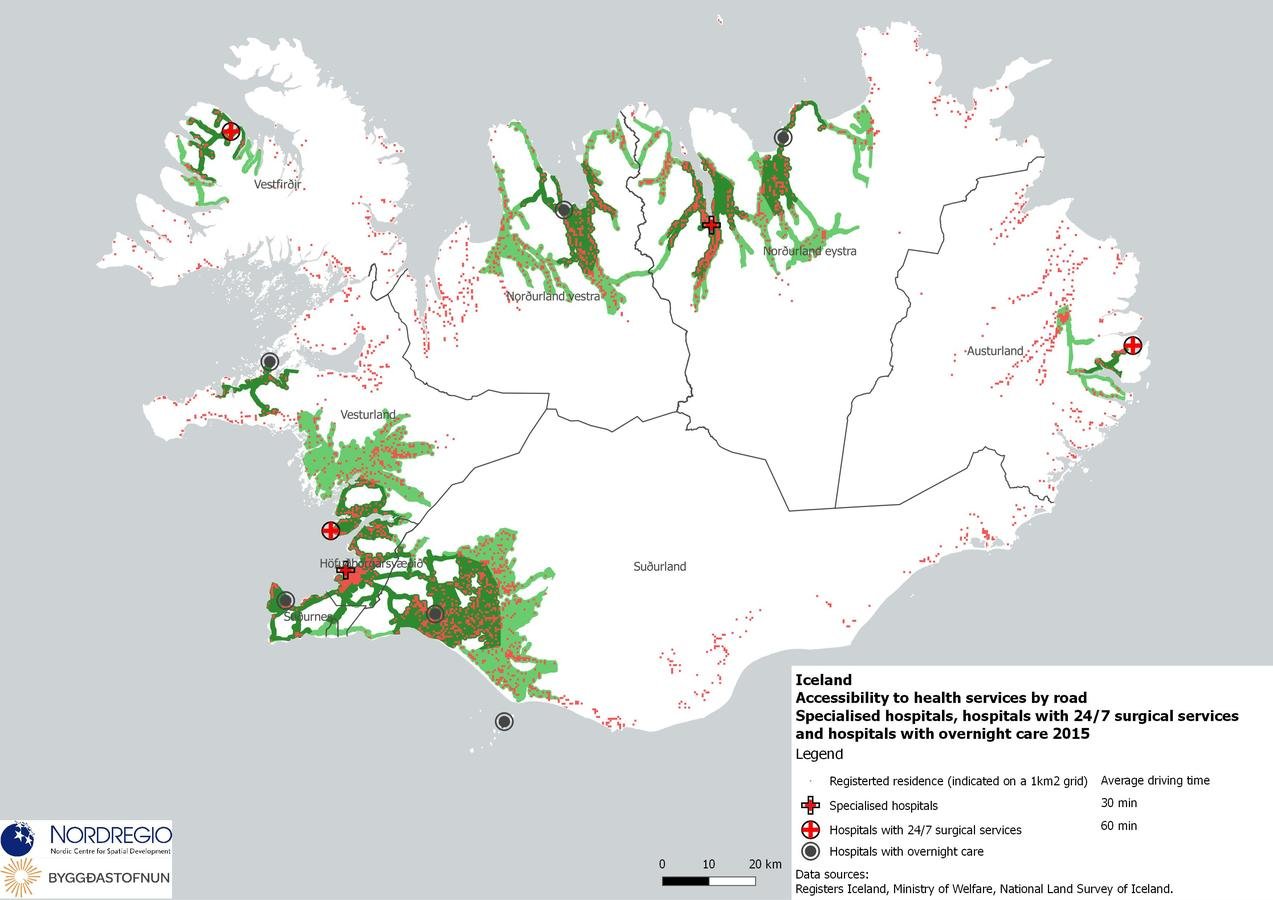
Future perspectives

- Generational shifts in what is attractive living? What might this mean for long-term strategy?
- Comprehensive understandings of mobility
- Combining the everyday life perspective with business and commerce development
- What are the specific planning needs in your municipal perspectives?
- How can this type of information be useful for you in your work?
Local Communities and Everyday Life in Funen
By Ryan Weber
Local Communities and Everyday Life in Funen
Ryan & Ilpo. Svendborg 4.4.2016
- 935


